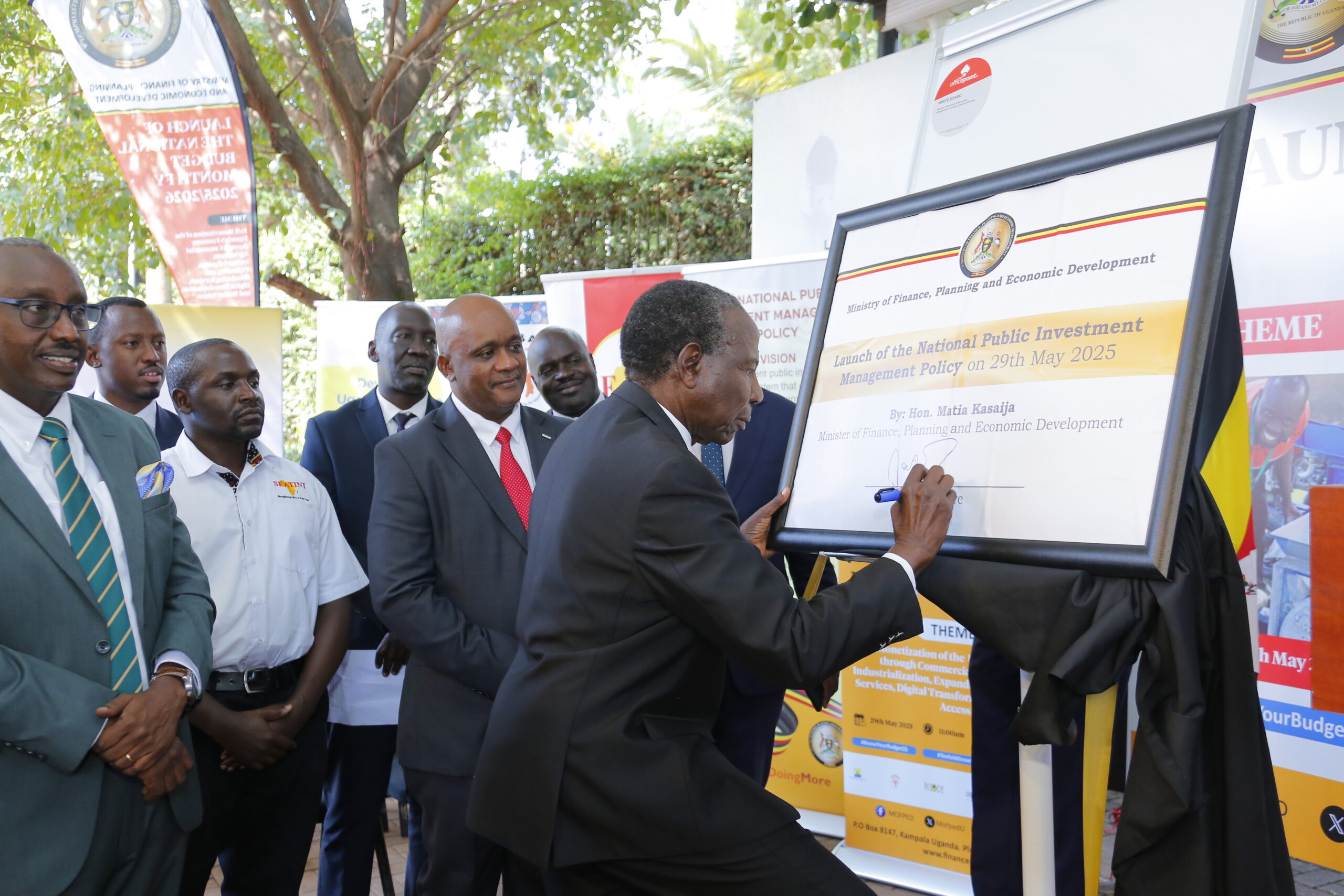Uganda launches National Budget Month FY 2025/26, urges citizens to own the budget process

Uganda has officially launched its National Budget Month for the Financial Year 2025/26, setting in motion a nationwide campaign to explain the national budget to citizens, enhance accountability, and foster inclusive participation. The launch event, held at the Uganda Media Centre in Kampala, was graced by Finance Minister Hon. Matia Kasaija, Acting Permanent Secretary/Secretary to the Treasury Mr. Patrick Ocailap, and civil society representatives led by CSBAG Executive Director Julius Mukunda.
The Budget Month comes at a pivotal time, aligning with the rollout of the Fourth National Development Plan (NDP IV), which aims to transform Uganda’s economy from USD 50 billion to USD 500 billion by 2040.
Taking the Budget Closer to the People
In his remarks, Finance Minister Kasaija reiterated that the budget must reflect the needs and aspirations of all Ugandans.
“Governments across the world exist to deliver prosperity and improve the well-being of their citizens,” said Kasaija. “A responsive budget process is one that leaves no one behind.”
He also officially launched the National Public Investment Management (NPIM) Policy, a major reform to ensure efficient use of public resources.
“This policy will enforce value for money in public investments, especially in infrastructure and service delivery,” he noted.
Ocailap: Citizens Must Take Ownership of the Budget
Delivering a passionate address, Mr. Patrick Ocailap emphasized that preparing a good budget is not enough, implementation and public ownership are key.
“It is one thing to prepare a good budget and another to effectively implement it,” Ocailap stated. “The government is taking deliberate steps to ensure implementation challenges are addressed, especially through realistic revenue projections and careful expenditure control.”
Ocailap highlighted the importance of accountability and active participation, particularly from the private sector and ordinary citizens.
“We call on Ugandans to take full ownership of the national budget. Understand it, question it, engage with it, and follow up on its implementation,” he urged.
He also reaffirmed that the Ministry would continue to deepen citizen engagement through public dialogues, media appearances, and regional outreach programs scheduled throughout Budget Month.
Civil Society Commends Progress, Urges Strategic Reprioritization
On behalf of the Civil Society Budget Advocacy Group (CSBAG), Julius Mukunda praised the government for significant reforms such as the NPIM Policy and increased allocations to programs like the Parish Development Model and domestic arrears clearance.
“We appreciate the UGX 1.4 trillion allocated to clear domestic arrears. This will ease liquidity constraints for the private sector,” Mukunda noted.
However, he warned that Uganda’s ambitious economic transformation goals risk being undermined by underfunding of key production sectors.
“The ATMS sectors, Agro-industrialization, Tourism, Minerals, and Science & Technology are receiving less than 5% of the total budget. This is insufficient if we want to expand the economy tenfold by 2040,” he said.
Mukunda also flagged the growing burden of domestic borrowing and questioned whether the projected revenue collections are realistic.
Budget Month Activities Roll Out Nationwide
This year’s Budget Month includes a wide range of activities, such as blood donation drives, media engagements, regional dialogues, and public education campaigns. These activities are designed to simplify complex budget information and invite citizens into the policy process.
Among the key events is the Business-to-Budget Dialogue, led by CSBAG and partners, which will explore how the budget affects private sector growth and investment.
“We are encouraging every citizen to ask: how does this budget affect me, my family, my business, or my community?” said Ocailap. “Only then can we truly hold ourselves and our institutions accountable.”
Under the theme “Full Monetization of Uganda’s Economy through Commercial Agriculture, Industrialization, Expanding and Broadening Services, Digital Transformation and Market Access,” the FY2025/26 budget is positioned as a cornerstone of Uganda’s long-term economic transformation agenda.
But as both government officials and civil society leaders emphasized, achieving these ambitions will depend not only on well-written policies but on public ownership, efficient implementation, and transparent governance.




